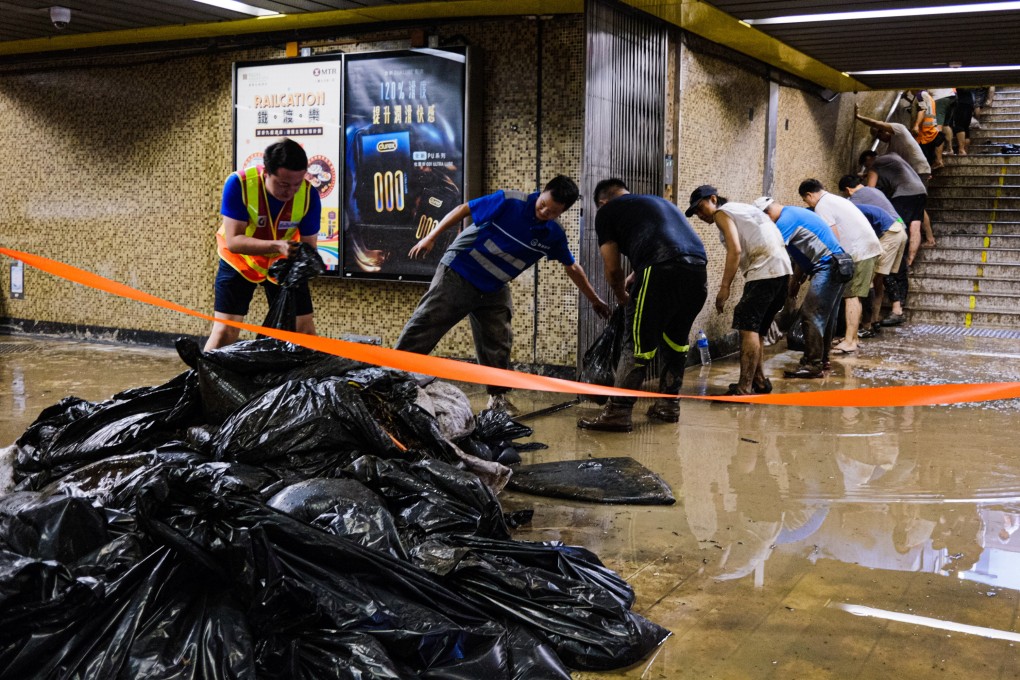Advertisement
Opinion | Hong Kong floods: even climate change sceptics must see the need to prepare for extreme weather
- The disruption brought by the historic rainstorm shows there is room for further improvement to the city’s stormwater drainage systems
- The authorities should consider using a network of nature-based solutions to effectively retain stormwater in urban environments
Reading Time:3 minutes
Why you can trust SCMP
5

Within two hours on Thursday night, the Hong Kong Observatory had exhausted the rainstorm warnings it could issue: amber, red and black. The observatory attributed the heavy downpours around the city to the trough of low pressure associated with Typhoon Haikui, although that storm, unlike Typhoon Saola, had not made landfall on Hong Kong.
A black rainstorm warning is issued by the Hong Kong Observatory when rain exceeding 70mm an hour has fallen or is expected to fall. In this instance, the city experienced 158.1mm of rain in an hour, more than double the warning threshold.
Last week’s black rainstorm rewrote more than one record since records began in 1884. It broke the previous hourly rainfall record of 145.5mm set in 2008. The black rainstorm signal was hoisted for more than 16 hours, also exceeding the previous record of nearly six hours in 1999.
Between Thursday night and Friday morning, images and videos of flash floods in MTR stations, roads and shopping malls were also uploaded by members of the public and spread widely on social media.
Those scary scenes unfolding in Hong Kong reminded me of the film An Inconvenient Truth, which I watched when it came out in 2006. At that time, the film was already describing the dire consequences inflicted by climate change.
I am guessing many ordinary people, as well as business leaders and government officials, also watched the film. However, I wonder how many of them have since acted on it, adjusting their lifestyles or implementing measures to make the planet less prone to climate change disaster.
Advertisement
